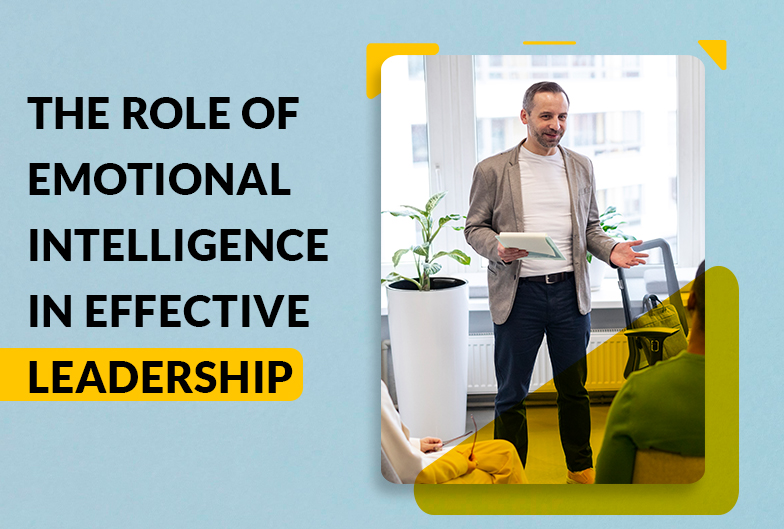In today's dynamic business landscape, effective leadership skills are essential for guiding teams towards success. While technical expertise and strategic thinking are vital components of leadership, emotional intelligence (EI) plays a significant role in determining a leader's effectiveness.
Understanding Emotional Intelligence
Emotional intelligence refers to the ability to recognize, understand, and manage one's own emotions, as well as the emotions of others. It encompasses several key components:
- Self-awareness: Recognizing one's own emotions and their impact on behaviour and decision-making.
- Self-regulation: Managing and controlling one's emotions in various situations, especially under pressure.
- Social awareness: Understanding the emotions and perspectives of others, and empathizing with their experiences.
- Relationship management: Building and maintaining healthy relationships by effectively communicating and resolving conflicts.
The Link Between Emotional Intelligence and Leadership Skills
Leadership skills encompass a wide range of abilities, including communication, decision-making, conflict resolution, and strategic thinking. Emotional intelligence acts as a catalyst that enhances these skills and enables leaders to navigate complex challenges with empathy and resilience.
Communication: Leaders with high emotional intelligence can effectively communicate their vision, goals, and expectations to their teams. They listen actively, understand the needs and concerns of their employees, and provide constructive feedback that fosters growth and development.
Decision-making: Emotionally intelligent leaders make informed decisions by considering both logical reasoning and emotional implications. They weigh the impact of their choices on individuals and the organisation as a whole, leading to more thoughtful and sustainable outcomes.
Conflict resolution: Conflict is inevitable in any workplace, but emotionally intelligent leaders approach conflicts with empathy and diplomacy. They mediate disputes impartially, address underlying emotions, and find mutually beneficial solutions that preserve relationships and foster collaboration.
Strategic thinking: Leaders with high emotional intelligence can anticipate market trends, identify opportunities, and adapt to changing circumstances with agility. They inspire confidence and trust among their team members, driving innovation and driving the organization towards its goals.
Cultivating Emotional Intelligence in Leadership
While some individuals may naturally possess higher levels of emotional intelligence, it's a skill that can be developed and refined over time. Here are some strategies for cultivating EI in leadership:
- Self-reflection: Take time to reflect on your own emotions, triggers, and responses in various situations. Practice mindfulness techniques to enhance self-awareness and self-regulation.
- Empathy: Make an effort to understand the perspectives and emotions of others. Actively listen to their concerns, validate their feelings, and demonstrate empathy in your interactions.
- Continuous learning: Invest in personal and professional development opportunities that focus on emotional intelligence, such as workshops, seminars, or coaching sessions.
- Feedback and reflection: Solicit feedback from colleagues, mentors, or trusted advisors to gain insights into your leadership style and areas for improvement. Reflect on this feedback and identify actionable steps for growth.
The impact of emotional intelligence on organizational success cannot be overstated. Leaders who prioritize EI create environments where employees thrive, leading to enhanced productivity, innovation, and overall success. Dezin consultants understand the importance of EI in leadership and offer tailored solutions to help corporate leaders incorporate emotional intelligence into their leadership skill sets. By equipping leaders with the tools and strategies to develop their emotional intelligence, Dezin consultants empower them to navigate challenges effectively, build strong relationships, and lead with empathy and authenticity. Through this holistic approach to leadership development, both the company and its leaders can achieve their fullest potential, driving sustainable growth and creating a positive impact on the organization, its employees, and society as a whole.





